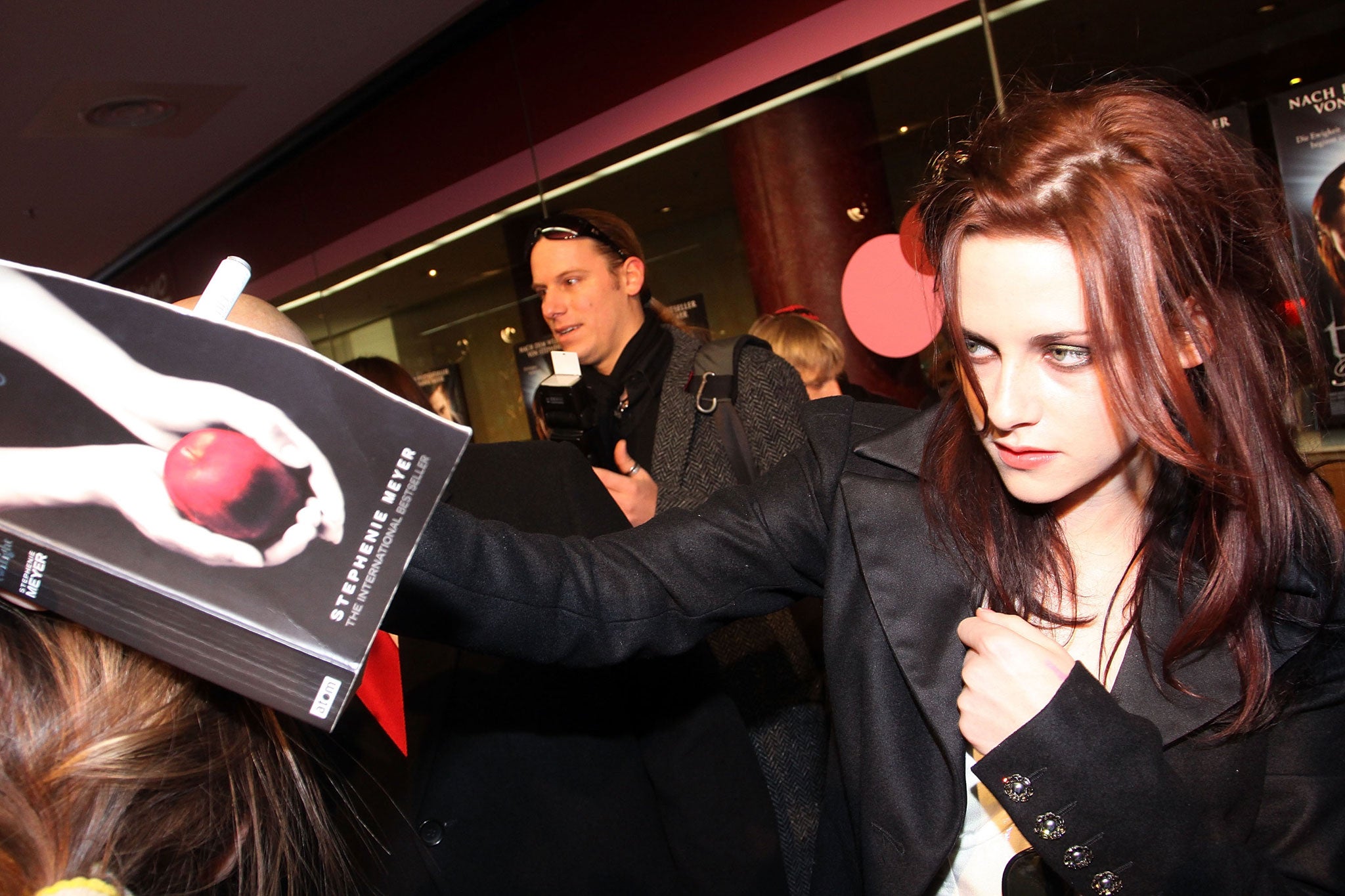‘Twilight’ is no less moral than ‘Pride and Prejudice’
The main thing is that children are reading – and enjoying what they’re reading

Our children are losing the moral compass that literature provides. Or so certain commentators would have us believe. Joanna Trollope’s remarks this weekend that increasingly popular fantasy stories give children little moral guidance echo those of Michael Gove back in May, when he declared, “You come home to find your 17-year-old daughter engrossed in a book. Which would delight you more... Twilight or Middlemarch?” Along with Twilight, Trollope singles out The Hunger Games as books that should be “countered” by teaching more classic fiction in schools, and goes on to say: “Fantasy doesn’t really relate to the real world”.
Aside from the issue of a writer who hasn’t understood the concept of metaphor – no fiction, fantasy or otherwise, means anything to us unless it relates to the experience of being human – Trollope seems to be unaware of what is actually going on in children’s publishing. It’s hard to imagine an industry that thinks more, knows more and cares more about the quality of what it puts before its customers.
The central power of The Hunger Games is precisely the fact that Katniss is put in a terrible moral conundrum – should she kill in order to survive? Readers would not be gripped in their millions if that question meant nothing to them. It’s ironic that Trollope picks on Twilight; simply because Stephanie Meyer’s books are Austen’s. Twilight’s power comes in returning modern teenagers to the tension-laden salons of Austen’s heroines. By introducing the danger of the vampire, Meyer reboots the loaded sentence and the aching glance, and puts them into the school canteen. “Gosh, did Edward/Mr Darcy just look at me? I wonder what his intentions might be?”
Trollope’s remarks support the publication of her modern reworking of Sense and Sensibility. She states that it tackles “love, money and class” with messages that make it relevant today, and argues that modern reworkings should be used in schools if children find the original language difficult. This seems to imply there is something “wrong” with the classics. If you want to teach them, teach them as they are, with their original text and un-bowdlerized power.
And they are being taught: Trollope may also be unaware of what actually goes on in our schools. One of the main pleasures of my job is the opportunity to visit all manner of schools across the land. If you only ever watched things like Educating Yorkshire, you could be forgiven for believing our children are wild, abandoned monsters. My experience teaches me otherwise: every week I am delighted, though not surprised, to meet hundreds of engaging young people, reading all sorts of things, from Twilight to Wild Swans to Captain Underpants to, yes, Jane Austen. Personally, I believe the main thing is that they’re reading, and enjoying what they’re reading, for that opens the doorway not only to the vast world of literature; it can also lead to the desire to embrace diversity – something Trollope seems unwilling to do.
Marcus Sedgwick is an award-winning writer of books for young adults. His new book is ‘She Is Not Invisible’
Join our commenting forum
Join thought-provoking conversations, follow other Independent readers and see their replies
Comments
Bookmark popover
Removed from bookmarks